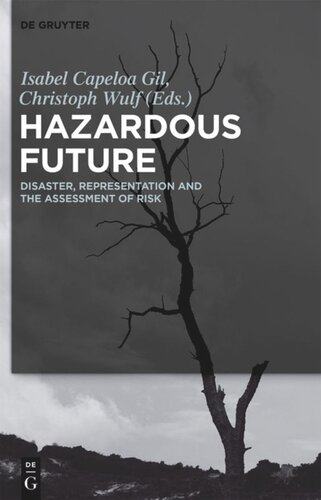

Most ebook files are in PDF format, so you can easily read them using various software such as Foxit Reader or directly on the Google Chrome browser.
Some ebook files are released by publishers in other formats such as .awz, .mobi, .epub, .fb2, etc. You may need to install specific software to read these formats on mobile/PC, such as Calibre.
Please read the tutorial at this link: https://ebookbell.com/faq
We offer FREE conversion to the popular formats you request; however, this may take some time. Therefore, right after payment, please email us, and we will try to provide the service as quickly as possible.
For some exceptional file formats or broken links (if any), please refrain from opening any disputes. Instead, email us first, and we will try to assist within a maximum of 6 hours.
EbookBell Team

5.0
70 reviewsSince culture, the media and the arts deal with the perception and the processing of catastrophe, what kind of social knowledge does this process produce and how does it contribute to the sustainable development of societies?
The book seeks to understand how societies and cultures deal with disaster and the rhetorical means they resort to in order to represent it. It is situated on the cusp between the response to natural catastrophe, the renewed awareness of human vulnerability in the face of environmental hazard and irresponsible policies and the social role of traditional knowledge and humanistic ideas for the preservation of human communities. It aims to be diverse, in disciplinary allegiance and cultural situation, and relevant, by bringing together articles by well-known scholars and policy makers to jointly discuss the possibilities of reframing hazard for the future, so that one may learn from restored behavior instead of repeating the mistakes of the past.